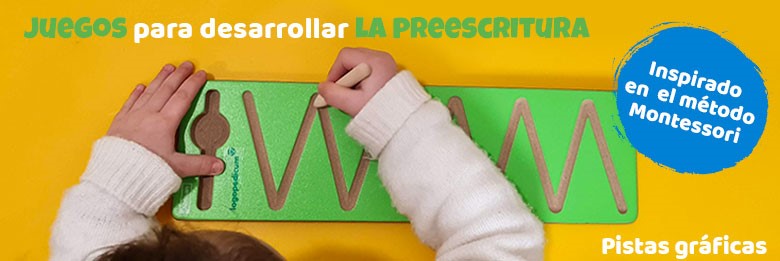
Aprender es modificar o adquirir nuevas habilidades, destrezas, conocimientos, conductas y valores mediante la experimentación, el estudio, la observación, el razonamiento o la instrucción. Múltiples y variados juegos disponibles hoy en día, desde los más clásicos hasta los más innovadores, pueden ser grandes herramientas para construir una variedad de aprendizajes: lectoescritura, matemáticas, razonamiento y resolución de problemas, etc. aportando motivación e interés a los jugadores. Más allá de la estimulación de las inteligencias múltiples, fomentaremos la autoestima, incentivaremos la cooperación y el trabajo en equipo y mejoraremos el comportamiento y la actitud, entre otros muchos aspectos.
 Auditory Memory Caterpillar
29,90 € (VAT not included)
Auditory Memory Caterpillar
29,90 € (VAT not included)
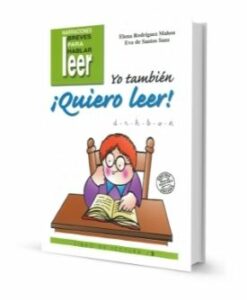 "Yo También ¡Quiero Leer!"
4,52 € – 6,00 € (VAT not included)
"Yo También ¡Quiero Leer!"
4,52 € – 6,00 € (VAT not included)
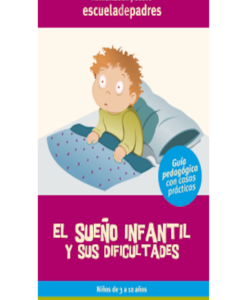 El sueño infantil y sus dificultades
15,90 € (VAT not included)
El sueño infantil y sus dificultades
15,90 € (VAT not included)
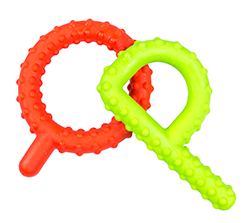 Chewytube P and Q Rough
10,50 € (VAT not included)
Chewytube P and Q Rough
10,50 € (VAT not included)
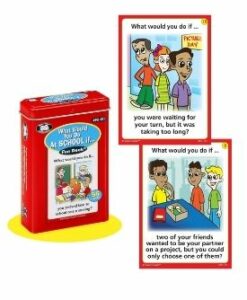 What would you do at school if...
18,50 € (VAT not included)
What would you do at school if...
18,50 € (VAT not included)
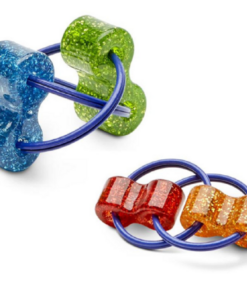 Fidget - infinite
Sold out (VAT not included)
Fidget - infinite
Sold out (VAT not included)
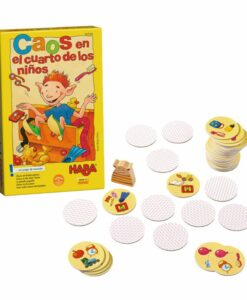 Eagle's eye view - Chaos in the children's room
11,90 € (VAT not included)
Eagle's eye view - Chaos in the children's room
11,90 € (VAT not included)
Showing 217–252 of 459 resultsSorted by latest
No account yet?
Create an AccountThese language exercises have been elaborated from the work done with children whose ages corresponded to a primary school level, although their pedagogical levels were below the contents given in the regular classroom. The causes of this age-pedagogical level gap are diverse but can be grouped as follows:
In all the problems mentioned so far, it was necessary to carry out an individualized program taking as a starting point the pedagogical level of the child as well as his or her own interests, which necessarily leads to the adaptation of the objectives of the reeducation to these interests. For this same reason, this book intends to suggest a type of exercises not with the purpose of being worked systematically and orderly, but with the purpose of being applied and even modified according to the center of interest that has been elaborated at a given moment of the reeducation.
The selection of these exercises has been made taking into account two fundamental areas that are generally not yet assimilated in the children in question: classification exercises that allow access to later levels of generalization and abstraction, and written comprehension-expression exercises, elaborated from a dynamic and functional point of view.
Text in Spanish. https://logopedicum.com/wp-content/uploads/2022/01/Fichas-de-Lenguaje-y-Lectura-Comprensiva-2-247x300.jpg 20.00 instock Areas of DevelopmentBooksLEARNINGSReading and writingReading and writingReading and writing 0 0.00 0 https://logopedicum.com/wp-content/uploads/2022/01/Fichas-de-Lenguaje-y-Lectura-Comprensiva-2-247x300.jpg 244685244060244941232814244931 20.00 19.23 0.00 0.00 2022-01-20T10:26:16+01:00Spin the wheel and look for pictures that begin with a letter or phoneme, contain that letter or phoneme, or have a certain number of syllables! Play with pictures to mentally segment words into syllables and identify phonemes and letters progressively. Phonological awareness is fundamental to generate a good pre-reading base. Segmenting into phonemes, spelling and syllabication from pictures is especially indicated when there are specific learning difficulties in reading and writing, dyslexia, etc.
Includes: - 1 sturdy cardboard roulette wheel (17.3 cm) - 3 sturdy cardboard roulette wheels (11.5 cm)- 80 chips of resistant cardboard with real images (5 cm)
- 10 sturdy cardboard tokens with stars (3 cm)
- 1 erasable marker Recommended age: 4-8 years old https://logopedicum.com/wp-content/uploads/2022/01/ruleta-prelectura-4-247x300.jpg 22.98 instock 3 – 6 years6 – 9 yearsAGEAreas of DevelopmentGAME TYPEGAMES AND TOYSHearing and languageJuegos de aprendizajeLANGUAGELEARNINGSPhonetics and phonologyReading and writingReading and writingReading and writing gamesTYPE OF TOY 0 0.00 0 https://logopedicum.com/wp-content/uploads/2022/01/ruleta-prelectura-4-247x300.jpg 244940245720244685244694244934 22.98 18.99 0.00 0.00 2022-01-15T11:18:30+01:00